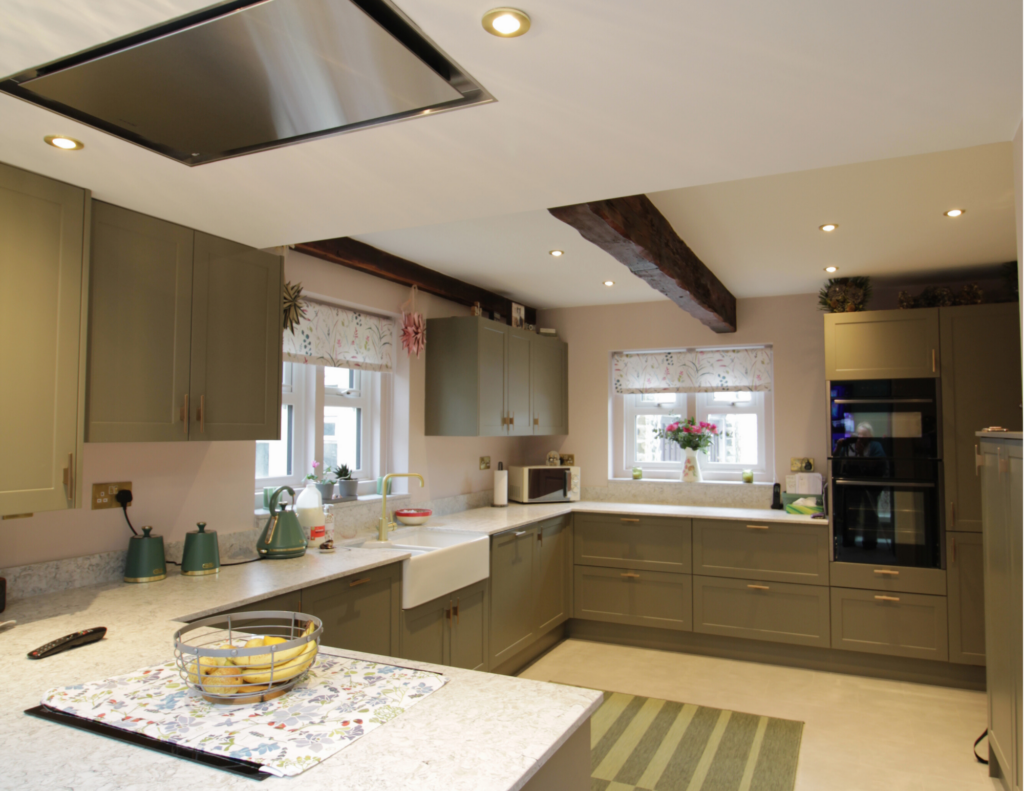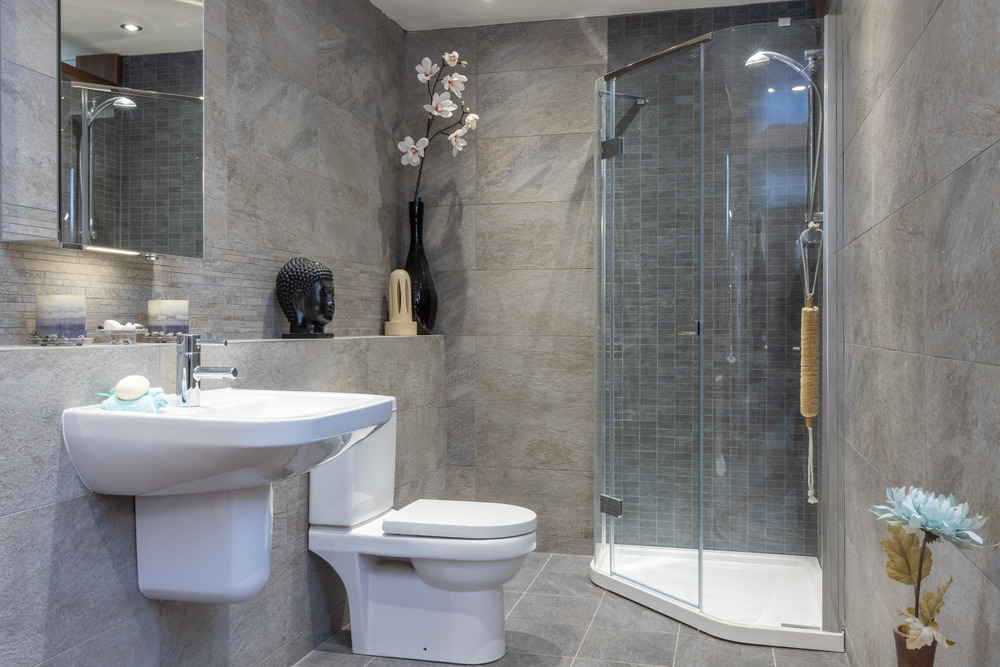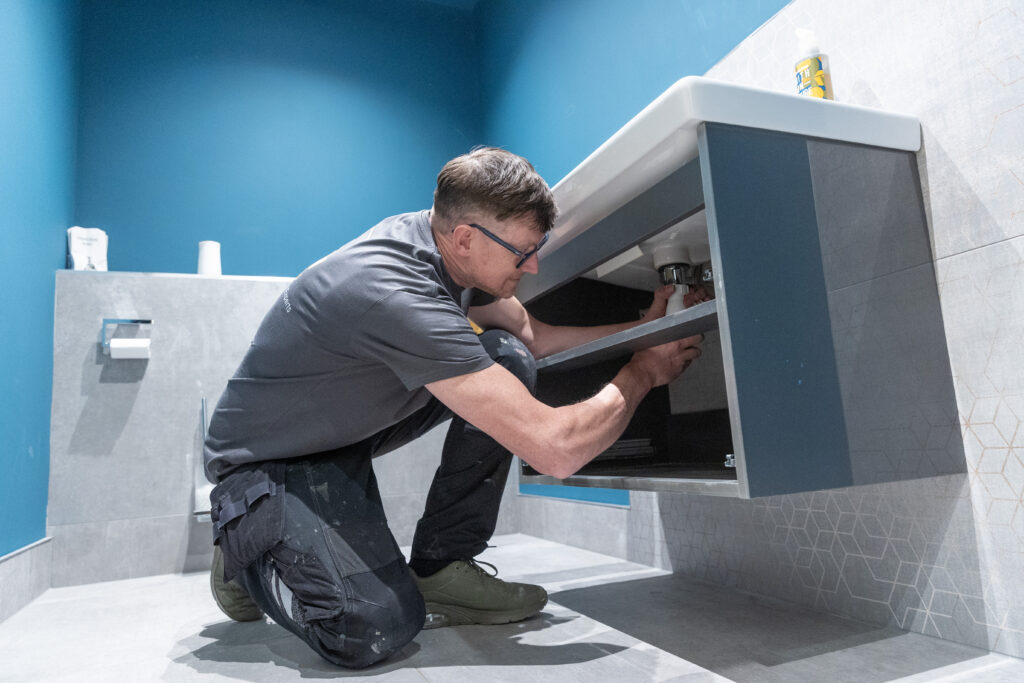We take care of your build
If so, you’ll be in safe hands with Adamson’s. Got a question, want an idea of price or ready to book your FREE home design visit?
A home renovation is an exciting opportunity to create a space that perfectly suits your lifestyle, but it’s also a significant investment. Whether you’re redesigning a kitchen, revamping a bathroom, or extending your living space, the key to success lies in thoughtful planning and clear communication with your designer.
Before construction begins, asking the right questions ensures that your design aligns with your vision, budget, and long-term needs. From optimising layout and storage to managing the project timeline, here are 15 crucial questions to discuss with your designer before starting your renovation.
A well-thought-out layout is the foundation of any successful renovation. It determines how efficiently your space functions, how comfortable it feels, and how well it adapts to your lifestyle over time. Before settling on a final design, talk to your designer about how to make the best use of your space while considering daily routines, future needs, and structural limitations.

Think about how you move through your home. Do you need an open-plan kitchen to keep an eye on the kids, or a separate utility area to keep washing baskets and drying clothes out of sight? Your layout should reflect your lifestyle, ensuring the space works seamlessly for your needs.
Good lighting transforms a space. Ask your designer about the best window placements, skylight options, or even reflective surfaces like glass and mirrors to make the most of natural light. A bright, airy room instantly feels more inviting and spacious.
In a kitchen, the ‘working triangle’ (fridge, cooker, sink) should be easy to navigate.
In a bathroom, placing the shower and toilet thoughtfully can make a small space feel bigger. Each room should have a logical flow to ensure comfort and usability.
A great design should last. Will your space still work for you in five or ten years? Think about flexible spaces, like an open-plan kitchen that can evolve with your family or a home office that could later become a guest room.
Older homes may have load-bearing walls that restrict open-plan designs, while extensions may need additional structural support. Understanding these factors early can help manage expectations and avoid unexpected costs.
Once the layout is finalised, the next step is ensuring that the design is both visually stunning and practical for daily life. Your choice of materials, storage solutions, and finishes will determine the longevity, comfort, and overall aesthetic of your home. These questions will help you and your designer create a space that reflects your personality while remaining functional for years to come.

From worktops to flooring, materials matter. Quartz counters are durable and easy to maintain, while natural stone adds luxury but requires more care. Choosing the right materials balances aesthetics with practicality.
Smart storage solutions keep your home organised without sacrificing design. Fitted wardrobes, hidden pantry shelving, and built-in bathroom niches can keep storage discreet. Consider multi-purpose furniture, like a kitchen island with integrated drawers or under-bed storage in bedrooms.
Lighter tones can make a small space feel bigger, while deep, rich colours create warmth and luxury. Ask how colour choices will work with your lighting and the overall mood you want to achieve.
Consistency in materials, colour palettes, and design details (like matching handles across different rooms) helps create a seamless flow between spaces. Your designer can help tie everything together for a polished look.
Soft-close drawers, under-cabinet lighting, or custom feature walls can elevate a design. Even small choices, like the shape of a tap or the finish of a door handle, can have a big impact on the final look.
Even the best design won’t be successful without careful planning and execution. Before construction begins, it’s essential to discuss the timeline, budget, project management, and any potential challenges that might arise. These questions will help you set clear expectations and avoid costly surprises during the build.

A clear project timeline is essential. Ask about potential delays (like waiting for materials) and how they’ll be handled. If you’re living in the house during the build, ask what to expect in terms of disruption.
Know exactly what’s covered in your quote. Investing in high-quality kitchen cabinetry or well-made doors may be worth it, while you might save on things like lighting fixtures that can be swapped out later.
A well-managed project runs smoother. Ask who will be overseeing the work daily and how communication will be handled—whether through weekly updates, a project app, or regular site visits.
Every renovation project has unknowns—like discovering old wiring that needs replacing or delays in material deliveries. A good designer will anticipate these challenges and have solutions ready.
Once construction is complete, you’ll want to know what support is available. Ask about warranties on workmanship, manufacturer guarantees on materials, and what aftercare services your contractor provides.
A successful renovation isn’t just about beautiful design—it’s about creating a home that truly works for you, both now and in the future. By asking the right questions before your project begins, you’ll gain a clearer understanding of how your space will function, how your design choices will hold up over time, and what to expect during the build process.
From optimising your layout and selecting durable materials to managing timelines and budgets, open communication with your designer ensures a smooth, stress-free experience. Taking the time to plan ahead will help you avoid costly mistakes and make confident decisions that bring your vision to life.
Thinking about a renovation? At Adamson Construction, we take care of every aspect of your build, ensuring a seamless transformation from concept to completion.
Get in touch today to start your journey toward a beautifully designed home.
